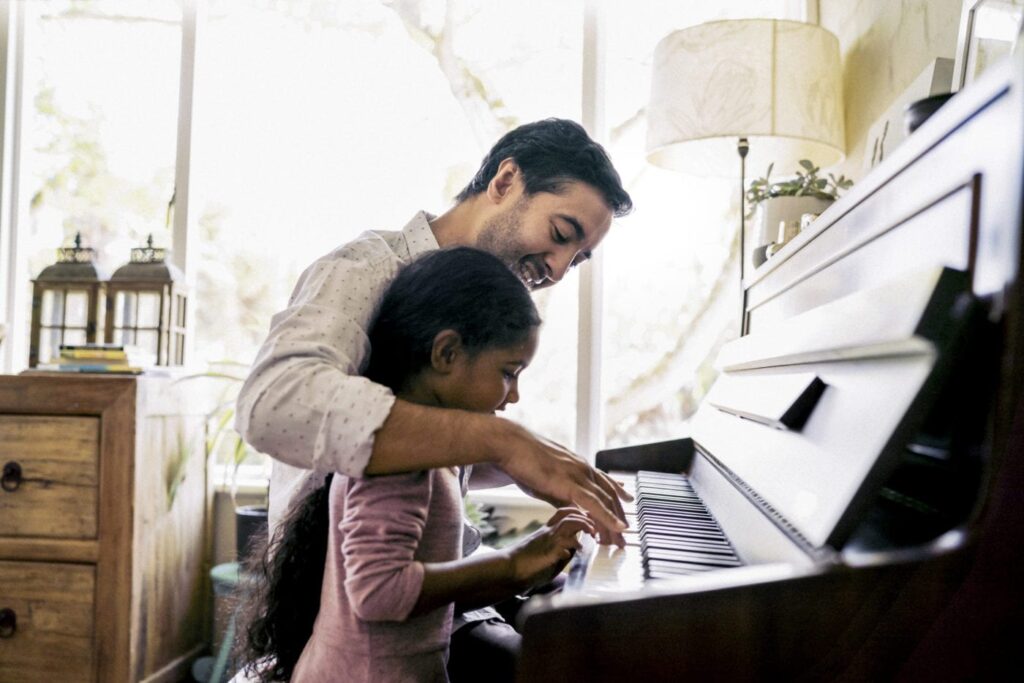A few weeks ago, I had a consultation with a gentleman who reached out to me for help to both navigate his divorce and improve his co-parenting relationship with his wife. His parenting concerns were a bit unusual. As we discussed his fears, he did not know if he would be a good father due to having been raised by a very emotionally abusive father. He suffered from anxiety throughout his life and had taken steps such as counseling, so he could address and cope with it in the best way possible. To be honest, when he described his wonderful relationship with his two children, he seemed to be a great father. He was attentive, showed up for their activities, kept routines with them, and placed a strong value on stability for his children. Yet, his childhood made him doubt his ability to continue being a good father on his own.
Many fathers face the same challenge, how to be a good father when they had an abusive or absent one themselves, however, they want to raise well-adjusted children and be an example of a good father. It may be challenging; the good news is, it can be done.
If you’re now a father or are about to become one, and you grew up without a father of your own, you can become a great dad for your children. Here are 4 pieces of advice that can help.
- Give some thought to what makes a good dad. There are many basic principles associated with becoming a good father. Just one example: raising happy, well-adjusted children who know they are loved and have the self-confidence to be whatever they can be. Staying true to your personal “fatherhood principles” will help you make the decisions and actions that will result in a solid, healthy relationship with your children. Fathers need to be willing to work hard to engage actively in their children’s lives and recognize just how crucial it is that dads do important things like play with their kids, hold their kids accountable for their behavior, and regularly say “I love you.” Their kids’ development depends on this. Kids desperately need to feel loved by their fathers. Good fathers will understand that they are called to provide such love and can provide it. While this may practically look different for dads in varying situations, the principle is the same. Good fathers are not passive in their relationships with their kids.
- Find a good male role model/mentor. It’s never too late to find great examples of fathers to learn from. You can find them at work, your children’s school, the barbershop, the gym, parks, playgrounds, just about anywhere. Maybe even in your extended family. Watch how these fathers interact with their children, as well as other people’s children. Ask them about how they feel about being a father, if they have rules or strategies they follow and if they will share their insights with you. Don’t be afraid to ask, observe, learn, and even fail in the process of growing as a father. Some men have more of an uphill climb than others, stay committed to the process.
- Join a father’s support group. Most communities have a father’s support group where dads get together (with or without their kids) to talk about the ups and downs of fatherhood and to share ideas, successes, and even failures with each other. This might be a great source of information and guidance, as well as to hang out with other fathers who know what you’re going through. Another great option is joining a support group on Facebook. You will meet fathers throughout the country facing similar struggles and challenges as you.
- Be a total partner in parenting. Boys who grew up without a good male role model often feel that parenting is mostly a mother’s job or that any attempts of being an active father will be useless. For a lot of dads, it’s tempting to leave the hard stuff to their mother such as discipline, carpooling, setting up playdates, making sure the homework’s done and you focus on being the “fun dad.” Not only is this not a good example to your children, but it’s also sending the message that you cannot handle more serious aspects of life. Instead, if you equally share in all the child-rearing responsibilities, the hard ones, and the fun ones, both your co-parent and children will be better off.
For many men, growing up without a father was enormously painful and created many challenges and setbacks. Having kids of their own won’t erase or make up for that but experiencing the joy that comes from being a great dad can be very healing and self-affirming. Also, forming a solid relationship with their children will not only give their kids a great foundation for life but will show them how to be positive male role models to their children down the road.
Remember, fatherhood is incredibly rewarding and there is no more important part of raising children than modeling the behavior you hope they embrace when they become adults, and parents themselves.
Hayley Lisa
The Divorce Coach for Men

